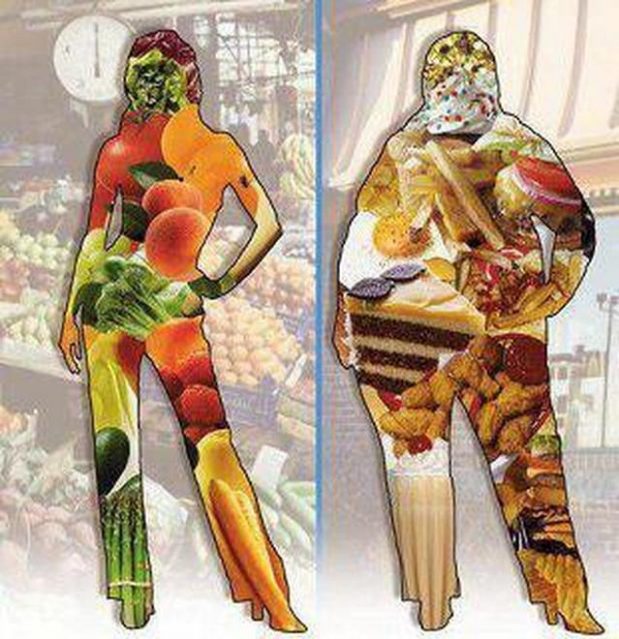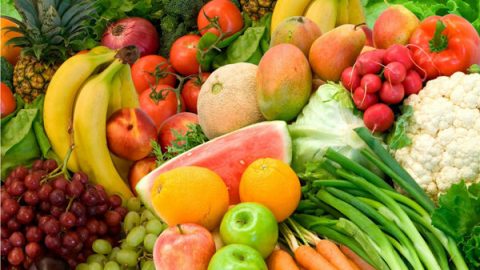Powerful Health Through Vegetarian Diet
Powerful Health Through Vegetarian Diet
World-renowned figures as diverse as philosophers Plato and Nietzsche, political leaders Benjamin Franklin and Gandhi, and pop icons Paul McCartney and Bob Marley have all advocated a vegetarian diet. Science is also on the side of vegetarianism. Multitudes of studies have demonstrated the remarkable health benefits of a vegetarian diet.

“Vegetarian” is defined as avoiding all animal flesh, including fish and poultry. Vegetarians who avoid flesh, but do eat animal products such as cheese, milk, and eggs, are ovo-lacto-vegetarians (ovo = egg; lacto = milk, cheese, etc.). The ranks of those who abstain from all animal products are rapidly growing; these people are referred to as pure vegetarians or vegans. Scientific research shows that health benefits increase as the amount of food from animal sources in the diet decreases, so vegan diets are the healthiest overall.
Preventing Cancer
Vegetarian diets—naturally low in saturated fat, high in fiber, and replete with cancer-protective phytochemicals—help to prevent cancer. Large studies in England and Germany have shown that vegetarians are about 40 percent less likely to develop cancer compared to meat-eaters.
Vegetarians avoid the animal fat linked to cancer and get abundant fiber, vitamins, and phytochemicals that help to prevent cancer. In addition, blood analysis of vegetarians reveals a higher level of “natural killer cells,” specialized white blood cells that attack cancer cells.14
Beating Heart Disease
Vegetarian diets also help prevent heart disease. Animal products are the main source of saturated fat and the only source of cholesterol in the diet. Vegetarians avoid these risky products. Additionally, fiber helps reduce cholesterol levels and animal products contain no fiber. Studies have demonstrated that a low-fat, high-fiber, vegetarian or vegan diet combined with stress reduction techniques, smoking cessation, and exercise, or combined with prudent drug intervention, could actually reverse atherosclerosis—hardening of the arteries

Lowering Blood Pressure
In the early 1900s, nutritionists noted that people who ate no meat had lower blood pressure.They also discovered that vegetarian diets could, within two weeks, significantly reduce a person’s blood pressure. These results were evident regardless of the sodium levels in the vegetarian diets. People who follow vegetarian diets typically have lower blood pressure.
Preventing and Reversing Diabetes
Non-insulin-dependent (adult-onset) diabetes can be better controlled and sometimes even eliminated through a low-fat, vegetarian diet along with regular exercise. Such a diet, low in fat and high in fiber and complex carbohydrates, allows insulin to work more effectively. The diabetic person can more easily regulate glucose levels. While a vegetarian diet cannot eliminate the need for insulin in people with type 1 (insulin-dependent) diabetes, it can often reduce the amounts of insulin used. Some scientists believe that insulin-dependent diabetes may be caused by an auto-immune reaction to dairy proteins.
Gallstones, Kidney Stones, and Osteoporosis
Vegetarian diets have been shown to reduce one’s chances of forming kidney stones and gallstones. Diets that are high in protein, especially animal protein, tend to cause the body to excrete more calcium, oxalate, and uric acid. These three substances are the main components of urinary tract stones.
Vegetarians are at a lower risk for osteoporosis. Since animal products force calcium out of the body, eating meat can promote bone loss. In nations with mainly vegetable diets (and without dairy product consumption), osteoporosis is less common than in the U.S., even when calcium intake is also less than in the U.S. Calcium is important, but there is no need to get calcium from dairy products.
Asthma
A 1985 Swedish study demonstrated that individuals with asthma practicing a vegan diet for a full year have a marked decrease in the need for medications and in the frequency and severity of asthma attacks. Twenty-two of the 24 subjects reported improvement by the end of the year.

Common Concerns
Some people still worry about whether a vegetarian diet can provide all essential nutrients. However, it is very easy to have a well-balanced diet with vegetarian foods, since these foods provide plenty of protein. Careful combining of foods is not necessary. Any normal variety of plant foods provides more than enough protein for the body’s needs. Although there is somewhat less protein in a vegetarian diet than a meat-eater’s diet, this is actually an advantage. Excess protein has been linked to kidney stones, osteoporosis, and possibly heart disease and some cancers. A diet focused on beans, whole grains, and vegetables contains adequate amounts of protein without the “overdose” most meat-eaters get.
Vitamin B12
Vitamin B12 is a genuine issue for vegans, although very easy to deal with. Found mainly in animal products, small amounts may be found in plant products due to bacterial contamination. However, these plant and fermented foods, such as spirulina, sea vegetables, tempeh, and miso, do not provide an active and reliable source, so vitamin B12 must be obtained elsewhere in the diet. Regular intake of vitamin B12 is important to meet nutritional needs. Good sources include all common multiple vitamins (including vegetarian vitamins), fortified cereals, nutritional yeast, and fortified soymilk. It is especially important for pregnant women, breast-feeding mothers, and children to get enough vitamin B12.
Special Concerns: Pregnancy, Infants, and Children
During pregnancy, nutritional needs increase. The American Dietetic Association has found vegan diets adequate for fulfilling nutritional needs during pregnancy, but pregnant women and nursing mothers should supplement their diets with vitamins B12 and D. Most doctors also recommend that pregnant women supplement their diet with iron and folic acid, although
Vegetarian children also have high nutritional needs, but these are met within a vegetarian diet. A vegetarian menu is life extending. As young children, vegetarians may grow more gradually, reach puberty somewhat later, and live substantially longer than do meat-eaters.


